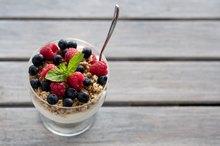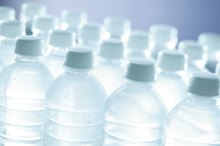What does fact checked mean?
At Healthfully, we strive to deliver objective content that is accurate and up-to-date. Our team periodically reviews articles in order to ensure content quality. The sources cited below consist of evidence from peer-reviewed journals, prominent medical organizations, academic associations, and government data.
The information contained on this site is for informational purposes only, and should not be used as a substitute for the advice of a professional health care provider. Please check with the appropriate physician regarding health questions and concerns. Although we strive to deliver accurate and up-to-date information, no guarantee to that effect is made.
Nutrition Information for Dried Orange Peel
In 2005, the United States was the second highest producer of oranges in the world. The orange is known for its fragrant fruit and rind. Dried orange peel, considered a by-product of the fruit, is popularly used in a variety of recipes as a flavoring. Orange peel can also be dried and candied. By rehydrating dried orange peel, you can use it as a substitute for orange zest.
Tips
Dried Orange Peel has 525 Calories and 5.00 g of Protein per 100 gram serving according to the nutrition facts provided by the USDA Food Composition Database.
Nutrients
There are six calories in one tbsp., or 6g, of dried orange peel, according to LIVESTRONG.COM’s MyPlate. It has zero fat or sodium, 13mg of potassium, 1.5g of carbohydrates, 0.6g of dietary fiber and .09g of protein. Dried orange peel contains certain vitamins, including vitamin C and calcium. It has 1 percent of the recommended daily allowance, or RDA, of vitamin A, and trace amounts of B vitamins. It has 1mg of phosphorus and magnesium and some zinc as well.
- There are six calories in one tbsp., It has 1 percent of the recommended daily allowance, or RDA, of vitamin A, and trace amounts of B vitamins.
Benefits
Nutritional Facts for Hubba Bubba Bubble Gum
Learn More
Dried orange peel has 14 percent of the RDA of vitamin C. Vitamin C helps promote healthy cell growth and repairs tissues. Vitamin C is beneficial for the eyes and cardiovascular system, and it may help prevent certain cancers. Dried orange peel is also a source of potassium, a mineral that helps regulate muscles and blood pressure. Potassium also helps convert blood sugar into glycogen, which is stored in muscle tissue and converted into energy.
- Dried orange peel has 14 percent of the RDA of vitamin C. Vitamin C helps promote healthy cell growth and repairs tissues.
Pectin
The pericarp, the white membrane of the orange peel, is a source of pectin, a soluble dietary fiber with a variety of health benefits 3. Pectin, which is associated with lower cholesterol, improves insulin resistance, regulates gastrointestinal problems, promotes immune system health and increases satiety. A 2004 study by researchers at the Institute of Organic Chemistry in Bulgaria found that drying orange peels actually produces more pectin with a much better quality.
Substitute
Kraft Easy Mac Nutrition Information
Learn More
Americans can eliminate thousands of calories from their diet by cutting down on condiments and using spices and all natural flavors instead of salt, ketchup and mayonnaise. You can use dried orange peel to add flavor to recipes and cooking or salad oils. You can also add it to beverages like tea, club soda or water. Lowering calorie intake is linked to weight loss, better heart health, lower cholesterol levels and better overall health.
- Americans can eliminate thousands of calories from their diet by cutting down on condiments and using spices and all natural flavors instead of salt, ketchup and mayonnaise.
- You can use dried orange peel to add flavor to recipes and cooking or salad oils.
Related Articles
References
- Gomestic: 10 Unique Uses for Orange Peel
- Food and Agricultural Organization of the United Nations: Oranges
- Dietary Fiber Food: What is Pectin?
- Orange Juice. U.S. Department of Agriculture. Published April 1, 2019.
- Hyson DA. A review and critical analysis of the scientific literature related to 100% fruit juice and human health. Adv Nutr. 2015;6(1):37-51. doi:10.3945/an.114.005728
- Glycemic index for 60+ foods. Harvard Health Publishing. Updated March 14, 2018.
- Vitamin C Fact Sheet for Health Professionals. National Institutes of Health Office of Dietary Supplements. Updated July 9, 2019.
- Orange, raw. U.S. Department of Agriculture. Published April 1, 2019.
- Franke SI, Guecheva TN, Henriques JA, Prá D. Orange juice and cancer chemoprevention. Nutr Cancer. 2013;65(7):943-53. doi:10.1080/01635581.2013.817594
- Calcium Fact Sheet for Health Professionals. National Institutes of Health Office of Dietary Supplements. Updated October 16, 2019.
Writer Bio
Shannon Marks started her journalism career in 1994. She was a reporter at the "Beachcomber" in Rehoboth Beach, Del., and contributed to "Philadelphia Weekly." Marks also served as a research editor, reporter and contributing writer at lifestyle, travel and entertainment magazines in New York City. She holds a Bachelor of Arts in literature from Temple University.









